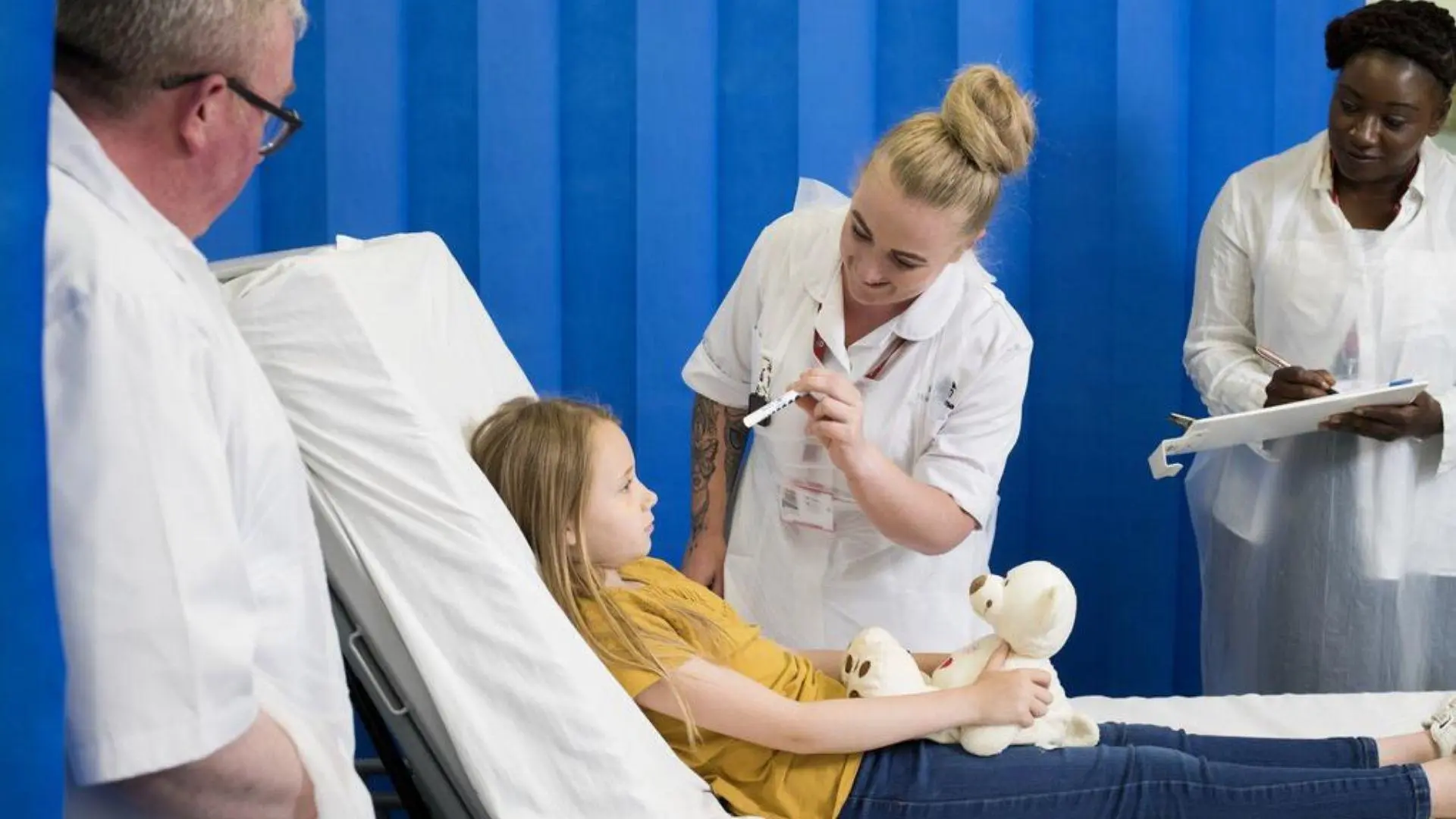Choosing the right nursing field is an important step in building a career that fits your interests, strengths, and long-term goals. When we say "nursing field," we mean the different specialisms you can train in. These include adult nursing, mental health nursing, children's nursing, or learning disabilities nursing. Each of these specialisms will have its own focus and patient group.
At the University of Central Lancashire, you’ll have the unique opportunity to specialise in your chosen field from day one. This means that learning, placements, and experiences will all be tailored to the area of nursing you're most passionate about. You'll get the support that will help you feel confident and prepared for your future role.
We’re proud to offer degree courses in four key nursing fields:
It’s important to understand the differences between each field. This will enable you to choose the course that best matches your interests and future career goals.
Adult nursing
Adult nursing focuses on caring for people over the age of 18 who may be facing a wide range of health conditions. These range from short-term illnesses and injuries to long-term or chronic diseases.
As an adult nurse, you’ll play a vital role in supporting patients through their treatment and recovery. You'll be working closely with individuals, families, and other healthcare professionals. This field offers variety and flexibility. You could work in hospitals, GP surgeries, community clinics, care homes, or even people’s own homes.
Our BSc (Hons) Adult Nursing course will give you the skills, knowledge, and confidence to deliver safe, compassionate care, in fast-paced healthcare environments.
You'll also gain valuable hands-on experience through placements with our local NHS trust partners. This will give you the chance to apply what you learn in real-life settings and build meaningful connections in the profession.
Children and young people's nursing
Children’s nursing is all about caring for infants, children, and young people up to the age of 18. You'll be supporting them and their families through a wide range of health conditions. As a children’s nurse, you’ll need to communicate clearly and compassionately with both young patients and their families. This will be especially important in emotionally sensitive situations.
Patience, empathy, and the ability to stay calm under pressure are key qualities that help children’s nurses provide the best care.
At our university, our BSC (Hons) Children and Young People’s Nursing course prepares you with the specialist knowledge and practical skills needed to care for this age group safely and effectively.
Learning disability nursing
Learning disability nursing focuses on supporting people with learning disabilities and complex needs. These professionals help such individuals to live more independent and fulfilling lives.
As a learning disability nurse, you’ll provide personalised care and advocate for your patients. You'll be working with families and other professionals to improve quality of life.
This role requires empathy, patience, and excellent communication skills. You will also need to have a strong commitment to promoting inclusion and respect.
Our BSc (Hons) Learning Disability Nursing degree combines academic study with practical placements. The course is specifically tailored to work with individuals with learning disabilities. You’ll gain hands-on experience supporting people in a variety of real-life settings. These include local NHS trusts and community services that focus on learning disability care.
Mental health nursing
Mental Health Nursing focuses supporting people who are dealing with mental health challenges. These can include anxiety and depression to more complex conditions like schizophrenia and bipolar disorder.
As a mental health nurse, you’ll provide compassionate care and help people manage their conditions. You'll also work to promote recovery and wellbeing. This role requires strong communication and collaboration skills, empathy and resilience.
During our BSc (Hons) Mental Health Nursing course, you'll take part in placements with local NHS trusts and community mental health teams. This will help prepare you to make a real difference in the lives of people living with mental health issues.
Course delivery
Once you've chosen your nursing field, it’s important to select a course delivery method that fits your learning style and lifestyle. We offer several pathways to meet different needs. Each one is designed to give you the knowledge and practical experience you need to become a skilled and caring nurse. Learning about these options will help you choose the path that fits your goals and personal situation.
For more details and to find the best fit for you, visit our Routes into Nursing page.
If you have questions or want to find out more about becoming a nurse, chat to our team.
Frequently asked questions about becoming a nurse
Where next?
- Subject
Nursing
- Article
The six Cs of nursing

